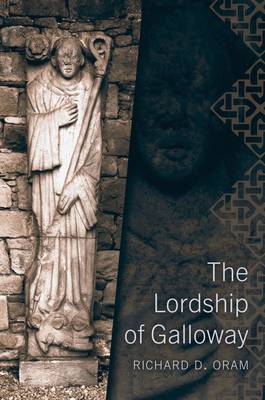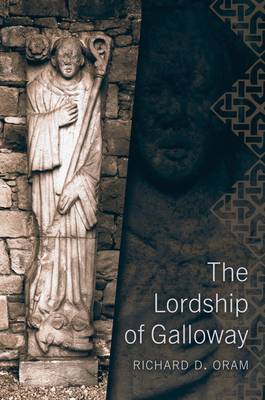
Bedankt voor het vertrouwen het afgelopen jaar! Om jou te bedanken bieden we GRATIS verzending (in België) aan op alles gedurende de hele maand januari.
- Afhalen na 1 uur in een winkel met voorraad
- In januari gratis thuislevering in België
- Ruim aanbod met 7 miljoen producten
Bedankt voor het vertrouwen het afgelopen jaar! Om jou te bedanken bieden we GRATIS verzending (in België) aan op alles gedurende de hele maand januari.
- Afhalen na 1 uur in een winkel met voorraad
- In januari gratis thuislevering in België
- Ruim aanbod met 7 miljoen producten
Zoeken
Omschrijving
In viewing Galloway from the wider context of the northern British mainland, Irish Sea and wider Hebridean zone, it has been possible to explore the dynamics of state-building, dynastic interactions, and the close inter-relationships of the territories connected by the western seaways, which most traditional 'national' histories obscure. From this wider perspective, the development of the lordship of Galloway can be considered in the context of the spreading power and regional rivalries of English, Irish and Scottish kings, and a reassessment of the emergence of the unitary lordship controlled by Fergus of Galloway and his family.
Traditional interpretations of the relationship of Fergus and his successors with the kings of England and Scotland are challenged and new light is thrown on the beginnings of the processes of progressive domination of Galloway by, and integration into, the kingdom of the Scots. The end of the autonomous lordship in the 1230s is projected against the backdrop of the aggressive state-building activities of King Alexander II and the transformation of its rulers from independently minded princes and warlords into Anglo-Scottish barons.
Traditional interpretations of the relationship of Fergus and his successors with the kings of England and Scotland are challenged and new light is thrown on the beginnings of the processes of progressive domination of Galloway by, and integration into, the kingdom of the Scots. The end of the autonomous lordship in the 1230s is projected against the backdrop of the aggressive state-building activities of King Alexander II and the transformation of its rulers from independently minded princes and warlords into Anglo-Scottish barons.
Specificaties
Betrokkenen
- Auteur(s):
- Uitgeverij:
Inhoud
- Aantal bladzijden:
- 352
- Taal:
- Engels
Eigenschappen
- Productcode (EAN):
- 9781910900451
- Verschijningsdatum:
- 16/06/2026
- Uitvoering:
- Paperback
- Formaat:
- Trade paperback (VS)
- Afmetingen:
- 156 mm x 234 mm

Alleen bij Standaard Boekhandel
+ 96 punten op je klantenkaart van Standaard Boekhandel
Beoordelingen
We publiceren alleen reviews die voldoen aan de voorwaarden voor reviews. Bekijk onze voorwaarden voor reviews.









